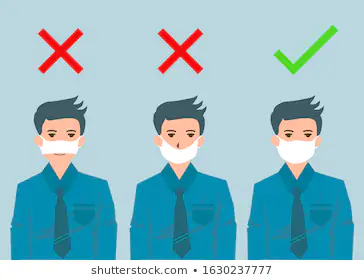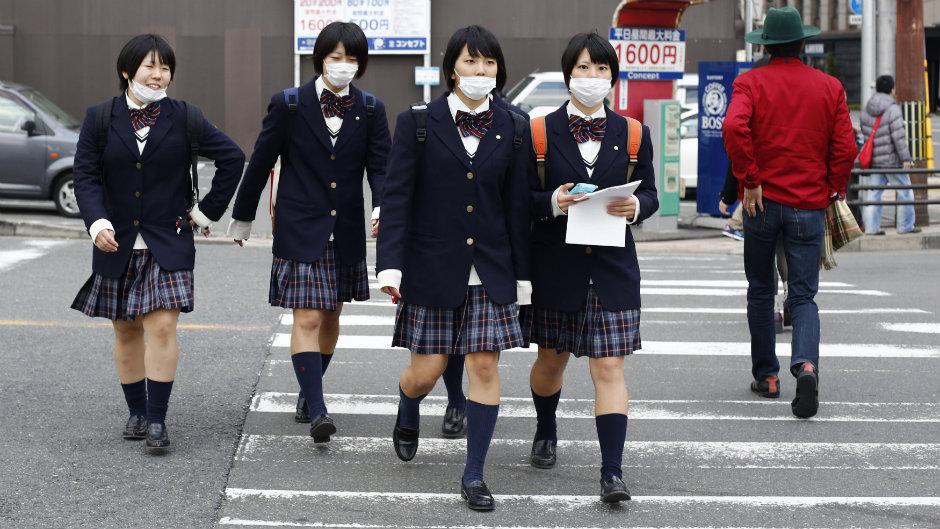
You’d think that we could have at least one social issue, news article, or comment from the media, politicians, Hollywood or somebody that would avoid harping on the Great American Boogeyman of our times, “systemic racism.”
Nope.
Even coronavirus is racist.
Yahoo News: People of color account for majority of coronavirus infections, new CDC study says
The findings provide additional confirmation that, as the CDC’s own report says, black and brown communities have been “disproportionately affected” by the pandemic. African-Americans account for only 13.4 percent of the U.S. population, according to the Census Bureau, but the CDC says they accounted for 22 percent of coronavirus infections studied in the new analysis.
Harris explained that poor health outcomes for people of color were “due in large part to disparities in access to health care, systemic barriers to affordable housing, and environmental injustice that existed long before the pandemic. The federal government must be proactive in righting these historical wrongs,” added the junior senator from California, who is also a potential Democratic vice presidential nominee.
(For “explained,” read: “narrated.")
Any serious person who reads such a headline (or the “news” article that sprawls beneath it, providing detail after unscientific, morally-certain detail) would ask himself a couple of questions. Such as:
- If poverty (called “access to X” in victimization parlance) is the problem, shouldn’t poor Whites have equally bad outcomes?
- Did anyone control for income? Did they even ask the question?
- If not, isn’t this just more race-baiting, dishonest propaganda from MSM?
The article glosses over the “Asian problem,” which constantly crops up in discussion of “systemic racism” in America:
Asian-Americans, people of Hawaiian-Pacific Islander background and people who identified as biracial or multiracial represented much smaller shares of the infected population.
What they specifically don’t disclose is whether those shares were proportionately smaller. Since that would destroy their thesis, I think we know the answer.
We all know that Asians have for years been ok wearing masks in public, pandemic or not. They also often remove their shoes before entering their homes. Both of these cultural behaviors would positively affect outcomes in a contagious-disease pandemic.
I mean, is it really that far fetched to suppose that, rather than being fabulously wealthy or “privileged,” the reason that Asians have better coronavirus outcomes even than whites is due to some cultural meme? Such as:

50% of the Asian schoolgirls in this random sample wore their masks incorrectly. However, the photo was not taken during a pandemic.
Masks have been as much fashion as prophylactic for Asians, for a long time:
The custom of facemask-wearing began in Japan during the early years of the 20th century, when a massive pandemic of influenza killed between 20 and 40 million people around the world—more than died in World War I. There were outbreaks of the disease on every inhabited continent, including Asia (where it devastated India, leading to the deaths of a full 5% of the population). Covering the face with scarves, veils and masks became a prevalent (if ineffective) means of warding off the disease in many parts of the world, until the epidemic finally faded at the end of 1919.
Disregard that “ineffective means” comment about masks; it’s a lie. Wearing a mask protects others, not the wearer. We can safely assume that Asians know this, since they appear to have no aversion to data and science. This kind of altruistic behavior is more common in places with higher social capital – which is depressed by multiculturalism and ethnic diversity. At least, that’s what the research says. YNMV (Your Narrative May Vary).
We can only speculate about race- or subgroup-specific rates of handwashing, avoidance of touching the face, and other CDC-recommended behaviors for avoiding catching or spreading coronavirus. (“Wearing a mask” is listed under “protect yourself and others.")
But we can reasonably ask: when researching coronavirus, and concluding that it hates “black and brown” people, why wouldn’t you study individual behavior, rather than automatically assume that the explanation must be exogenous and societal?
Oh, that’s right. Because any explanation that indicates a problem with individual or subcultural behavior, beliefs or attitudes is automatically disqualified under Critical Theory, which underlies all narrative-based sociological research, including in public health.
With origins in sociology as well as in literary criticism, [Critical Theory] argues that social problems are influenced and created more by societal structures and cultural assumptions than by individual and psychological factors. Maintaining that ideology is the principal obstacle to human liberation,[1] critical theory was established as a school of thought primarily by the Frankfurt School theoreticians Herbert Marcuse, Theodor Adorno, Walter Benjamin, Erich Fromm, and Max Horkheimer. The latter sociologist described a theory as critical insofar as it seeks “to liberate human beings from the circumstances that enslave them."
In other words: any disparate outcomes for “black and brown” people are due to societal problems like “systemic racism” – not group-specfic individual behavior.
And even if we did dare to ask the question, study the problem, and discover that indeed, blacks are reluctant to wear masks (or wear them correctly, over the nose) and help prevent spread in their communities, there’d be a “systemic racism” reason for that behavior, too:
“This (wearing a homemade mask) seems like a reasonable response unless you just sort of take American society out of it. When you can’t do that, you’re basically telling people to look dangerous given racial stereotypes that are out there,” Logan said.
“This is in the larger context of black men fitting the description of a suspect who has a hood on, who has a face covering on,” he added. “It looks like almost every criminal sketch of any garden-variety black suspect."
You read that right. Black people can’t wear masks, even in waiting rooms, because then we’d think they are more likely to commit crimes. And that belief is just white racism, btw. Statistics has nothing to do with it!
This is a perfect example of a subcultural belief that influences individual behavior. That behavior has consequences in the real world; but this connection will never be studied.
I can find no data or studies examining individual behavior, by race, that might affect coronavirus outcomes. No sociologist or public health doctoral candidate would dare to study this. The very idea is “racist.” (Remember, asking for evidence of “violent practices” is, itself, a “violent practice”.)
What I’ve seen
I can tell you my own anecdotal experience, in crowded public places in my city, including hospitals. During March and April, when coronavirus was spreading like mad, in crowded places I noticed, over and over, that black people refused to socially distance; they refused to wear their masks over their noses, or at all. They wore the masks under their chin and talked on their cell phones. Or wore it only over their mouths, not noses, because – as I have seen them complain about online – they “can’t breathe” if the mask is over their nose. Over and over again I – and others – witnessed this behavior. This was true in hallways, waiting rooms, lobbies etc.
Yes, this is anecdotal. It was also a very noticeable pattern. Such things deserve study.
But since they won’t be studied, we will have to rely on stereotypes, formed in personal observation. Fortunately, over millions of years, the human brain developed a keen and remarkable ability to recognize patterns in behavior. This is why, even though sociologists refuse to ask certain questions, those of us that are not biased by ideology (such as Critical Theory) already have a pretty good idea of the answer.
And it isn’t “racism.”
Leftist trigger warning: The comments below have not been moderated. They may challenge your beliefs, opinions or values, or even offend you. Proceed with caution and intellectual preparedness.